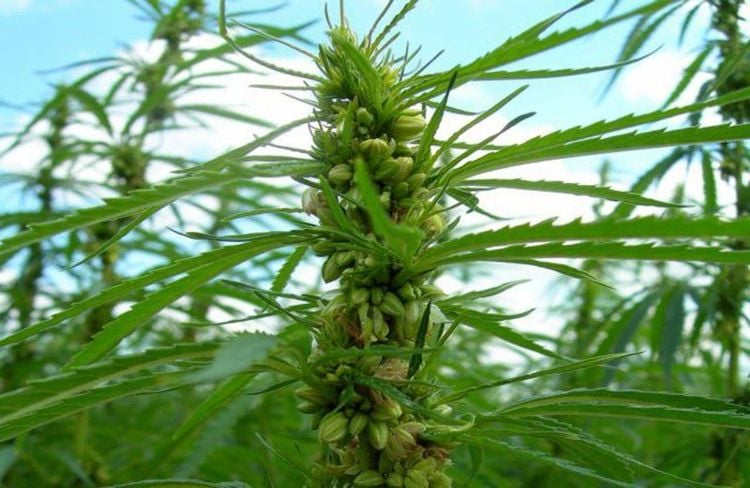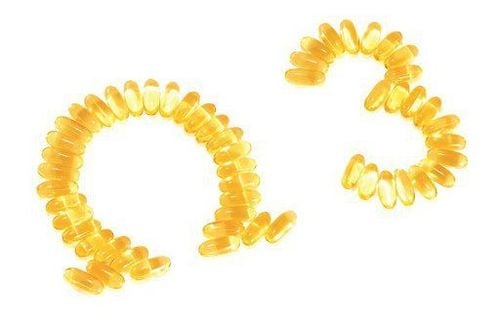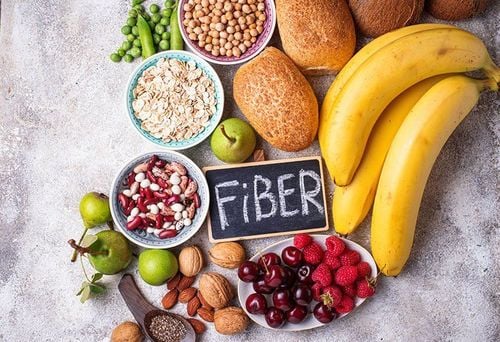This is an automatically translated article.
The scientific name of hemp is Cannabis sativa, the same species as the cannabis plant (marijuana) but with many different characteristics. Hemp seeds contain only very small amounts of THC, the psychoactive compound found in cannabis. Hemp seeds are exceptionally nutritious and rich in unsaturated fats, proteins and minerals. Here are 6 health benefits of hemp seeds that have been researched.
1. Hemp seeds are rich in nutrients
Hemp seeds are very nutritious, with a mild and nutty flavor. Hemp seeds contain more than 30% fat, and are particularly rich in two essential fatty acids, linoleic acid (omega-6) and alpha-linolenic acid (omega-3). They also contain gamma-linolenic acid, which is a compound with health benefits.
Hemp seeds are also an excellent source of protein, as 25% of total calories come from high-quality protein. This amount of protein is significantly higher than similar foods like chia seeds and flaxseeds, with calories ranging from 16% to 18% protein.
The content of vitamin E and minerals such as phosphorus, potassium, sodium, magnesium, sulfur, calcium, iron and zinc in hemp seeds is also very high.
Hemp seeds can be used raw, cooked or roasted. Hemp seed oil is also very healthy and has been used as food and medicine in China for 3,000 years.

Cây gai dầu
2. Hemp seeds can reduce the risk of cardiovascular diseases
Using hemp seeds can reduce the risk of cardiovascular disease. Hemp seeds contain a large amount of the amino acid arginine, which is the source of nitric oxide in the body. Nitric oxide is a gaseous molecule that dilates blood vessels, helping to lower blood pressure and reduce the risk of cardiovascular disease.
In a large study of 13,000 people, increases in arginine levels were correlated with decreased levels of C-reactive protein (CRP), which is a marker of inflammation. High CRP levels are linked to cardiovascular problems.
Hemp seeds also contain gamma-linolenic acid that works to reduce inflammation in the body, reducing the risk of diseases such as heart and blood vessel diseases. In addition, animal studies show that hemp seed or hemp seed oil can lower blood pressure, reduce the risk of blood clots, and increase recovery from a heart attack.
3. Hemp seeds and hemp oil may be beneficial for skin conditions
Fatty acids can affect the immune response in your body. Studies show that the immune system depends on a balance of omega-6 and omega-3 fatty acids.
Hemp seeds are a source of essential unsaturated fatty acids. They have an omega-6 to omega-3 ratio of 3:1, which is an optimal ratio. Studies show that giving hemp seed oil to people with eczema can improve blood levels of essential fatty acids. The oil can also relieve dry skin, improve itching, and reduce the need for skin medications.

Hạt gai dầu và dầu cây gai dầu giúp cải thiện tình trạng ngứa và khô da
4. Hemp seeds are a good source of plant protein for the body
About 25% of the calories in hemp seeds come from protein, which is a relatively high amount. In fact, by weight hemp seeds provide about the same amount of protein as beef and lamb varieties. 30 grams of hemp seeds is equivalent to about 2 tablespoons, providing about 11 grams of protein.
They are considered a pure protein source, which means that hemp seed protein can provide all the essential amino acids. The body cannot produce these essential amino acids and must be obtained from the diet daily. This pure protein source is rare in plant-based foods, with most plants lacking the amino acid lysine.
Quinoa is another example of a completely plant-based protein source. Hemp seeds contain significant amounts of the amino acids methionine and cysteine, as well as very high levels of arginine and glutamic acid. The digestibility of protein from hemp is also very good - better than protein derived from grains, nuts and legumes.
5. Hemp seeds can relieve symptoms of PMS (premenstrual syndrome) and menopause
Up to 80% of women of reproductive age may experience physical or emotional symptoms as a result of premenstrual syndrome (PMS). These symptoms may be caused by increased sensitivity to the hormone prolactin. Gamma-linolenic acid (GLA), found in hemp seeds, has the ability to produce prostaglandin E1 which reduces the effects of prolactin.In a study in women with PMS, taking 1 gram of essential fatty acids containing 210 mg of GLA per day significantly reduced symptoms. Other studies have shown that evening primrose oil, which is also rich in GLA, may be highly effective in reducing symptoms in women who have failed other PMS therapies. It relieves breast tenderness, depression, discomfort and symptoms of edema associated with PMS.

Hạt gai dầu giúp làm giảm các triệu chứng về thể chất và cảm xúc tiền kinh nguyệt ở phụ nữ
Because hemp seeds are high in GLA, some studies have shown that they may also help relieve menopausal symptoms. The mechanism is still unclear, but the GLA in hemp seeds has been shown to correct hormone imbalances and inflammation associated with menopause in women.
6. Raw Hemp Seeds Can Help Improve Digestion
Fiber is an essential part of the diet and is beneficial for the digestive system. Pure hemp seeds contain soluble and insoluble fibers in a ratio of 20% and 80%.
Soluble fiber forms a gel in the gut and is a source of nutrients for beneficial digestive bacteria and can also reduce blood sugar spikes and regulate cholesterol levels.
Insoluble fiber helps soften and bulk up stools and helps the digestive system work efficiently. It has also been linked to a reduced risk of diabetes.
However, shelled hemp seeds - also known as hemp kernels - contain very little fiber because a lot of the fiber in the hemp seed shell has been removed.
In summary, hemp seeds are very healthy because they are rich in unsaturated fats, high quality protein and several minerals. Of note, hemp seed pods may contain low amounts of THC (<0.3%), the nervous system stimulant found in cannabis. People who are already dependent on cannabis should not use this seed.
Article written by: healthline.com













